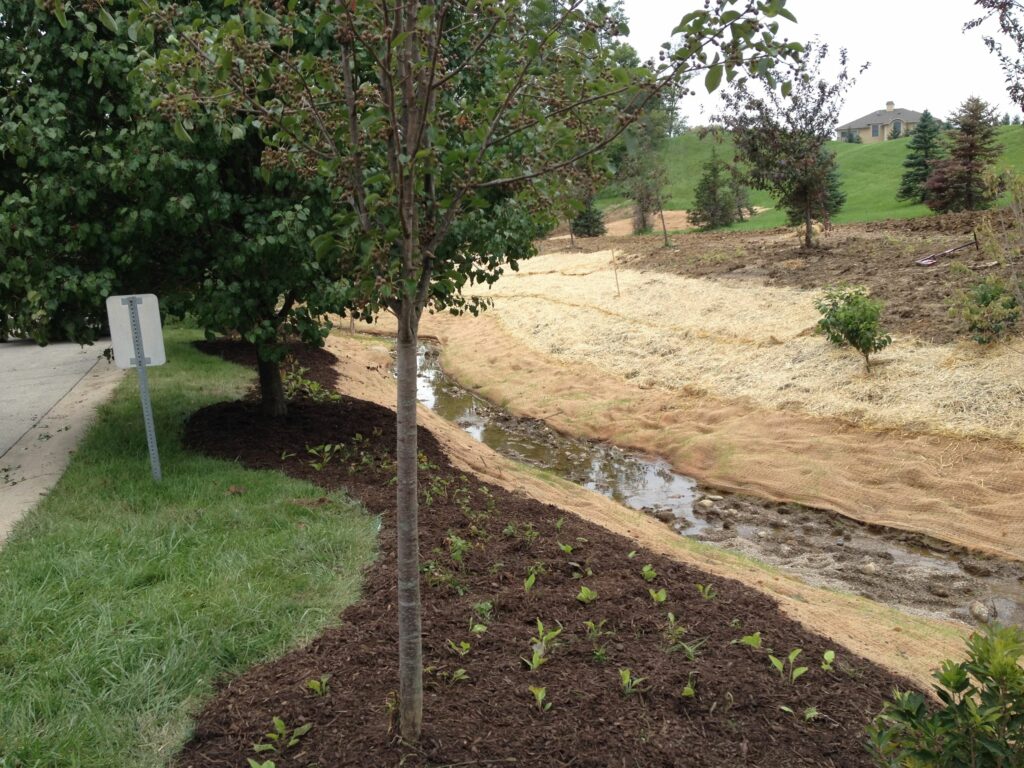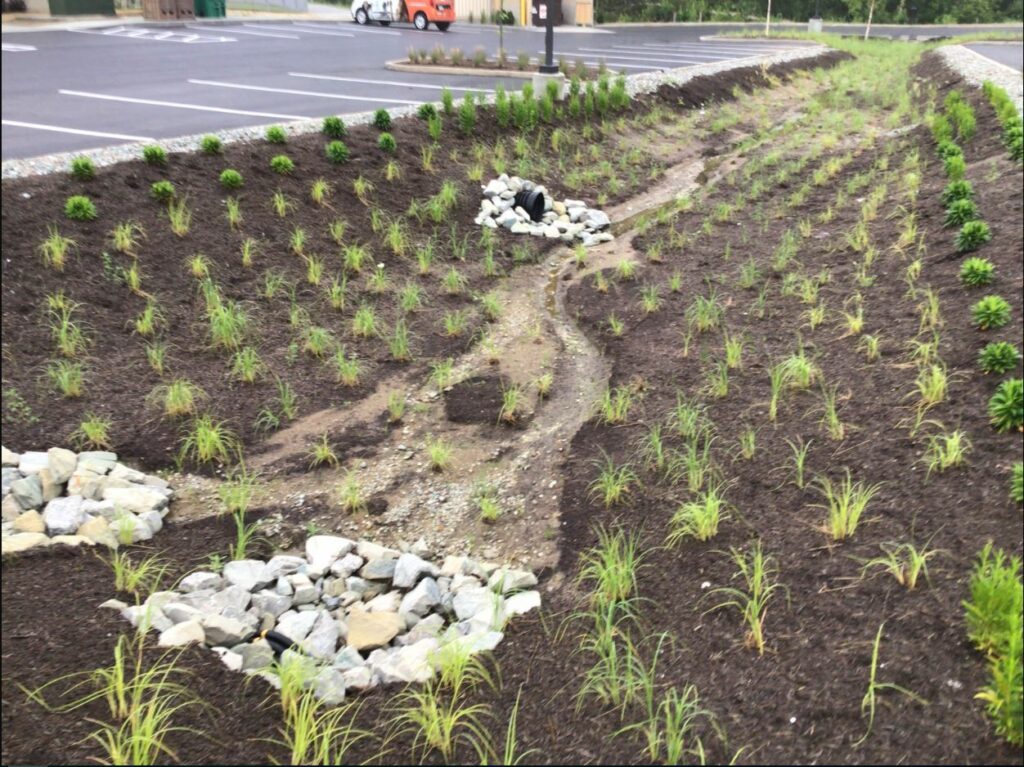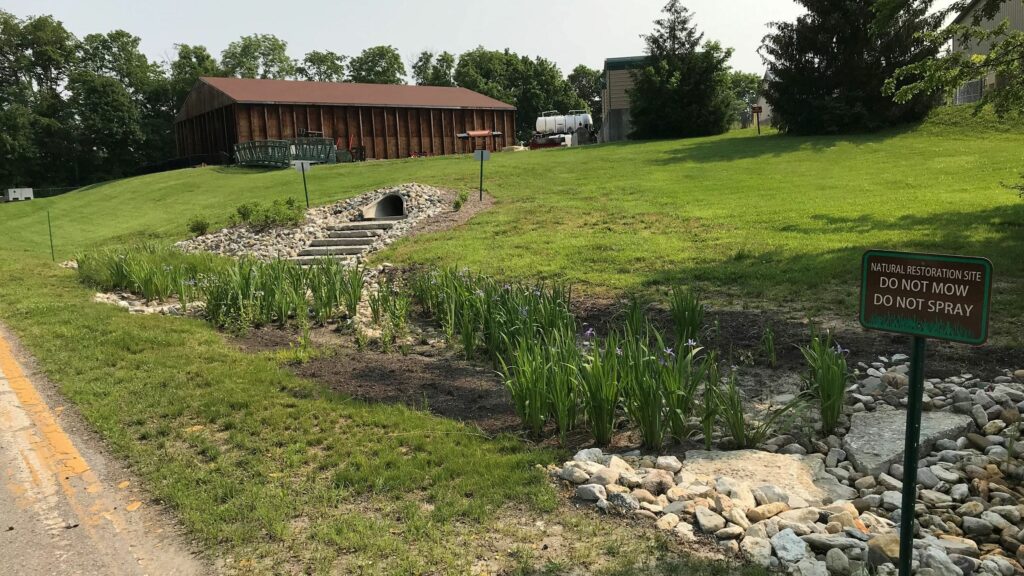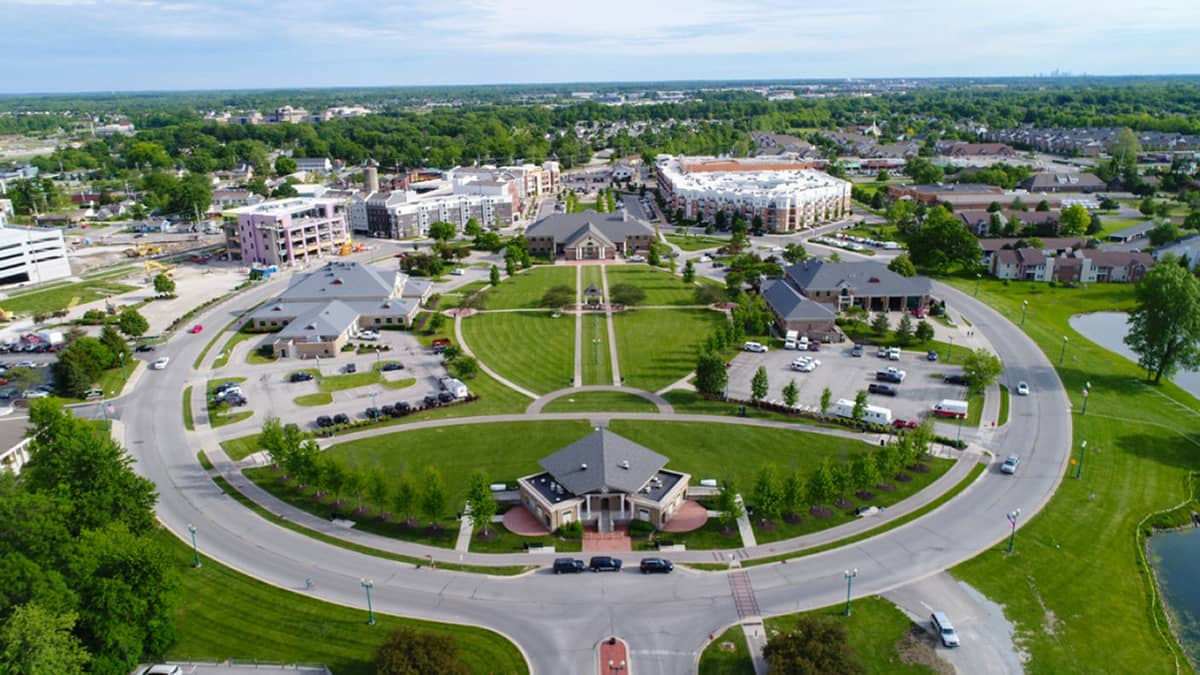Embracing Sustainability: Fishers’ Commitment to Urban Greenery, Eco-Friendly Programs, Community Recycling Efforts & More
What We Do

Urban Forestry & Planting Guide
The city’s Urban Forestry and Planting Guide is an intra-departmental effort between the Department of Planning & Zoning, Fishers Department of Public Works, and Fishers Parks.

Tree City USA
The City of Fishers has been awarded Tree City USA designation from the National Arbor Day Foundation annually since 2007. This designation is bestowed upon cities that continue the enhancement of the natural environment and practice sound urban forestry management.

Stormwater Management
Rainwater that falls on streets, parking lots, rooftops, and lawns often becomes polluted by automotive fluids, household chemicals, eroded soils, and lawn fertilizers before it enters the city’s storm sewer system. The Stormwater Management program helps educate the community about stormwater quality, clean up areas around streams and rivers, and Identify sources of pollution.

Environmental Working Group
The Fishers Environmental Working Group (EWG) is a group of governmental department representatives and non-governmental stakeholders all working together to help the City of Fishers be more prepared for the impacts of climate change.

Water, Splash Pads & Turf Management
To increase water quality and reduce chemical usage, Fishers Department of Public Works created self-sustaining, eco-friendly ponds at Cyntheanne Park and the Nickel Plate District AMP that include underwater aeration systems, fisheries, and aquatic shoreline plantings. These elements supply better quality water to sports fields and turf, producing deeper, healthier root systems and thicker, more lush turf quality.
Splash pads at Holland Park and Billericay Park and the fountain at the Pavilion at the Nickel Plate District AMP are eco-friendly, as well, utilizing a water recycling system that saves the city and environment approximately 100,000 gallons of water a day.
Fishers DPW also has a turf management policy in which they switched fertilizer to use a product that sprays microorganisms into the turf that secrete positive nutrients into the soil, thus fertilizing the grass.
Sustainability: Ways to Get Involved

City Recycling Day
The City of Fishers hosts bi-annual, free City Recycling Days in the spring and fall at Billericay Park. At these events, Fishers residents can recycle household electronic or metal items (mowers, treadmills, bikes, grills, batteries, etc.) and household hazardous wastes (paints, pesticides, PCB ballasts, auto fluids, etc.). Learn more.

Fishers Rain Garden Steward Program
The Fishers Rain Garden Steward program encourages the community to get involved in caring for Fishers parks and greenways to ensure the sustainability of our natural resources. Rain Garden Stewards help maintain adopted rain garden areas for a minimum of one time per month for one year.

Fishers Park Steward Programs
Fishers Park Stewards help to ensure our parks are clean, welcoming, and thriving ecosystems for our community to enjoy through trash cleanup, trail maintenance, invasive species removal, and reporting vandalism or park damage.

Free Rain Barrel & Composting Tumbler Pledge
Fishers Stormwater Division offers residents a free rain barrel when you take this pledge.
Residents can also receive a free composting tumbler after taking this pledge. Supplies are limited and first come, first served.

Neighborhood & Stormwater Grants
The City of Fishers offers a Neighborhood Vibrancy Grant to support neighborhoods in our community. Fishers also accepts applications for its Stormwater Grant, which awards funds to neighborhoods, non-profits, and homeowners within city limits as an incentive to improve local water quality and/or drainage function.

Fishers Parks Composting Program
Residents can get one free 3-gallon composting bin with 10 compostable liners and drop off their compost at the Fishers AgriPark. No additional compost beyond 3 gallons is available at this time. Compost drop-off is only available during scheduled times.

Neighborhood Cleanup Kits
Fishers neighborhoods can beautify their common spaces and facades with the Neighborhood Cleanup Kit program, which offers cleanup supplies and the use of a 20-yard dumpster, free of charge. HOA representatives can complete an application here.

